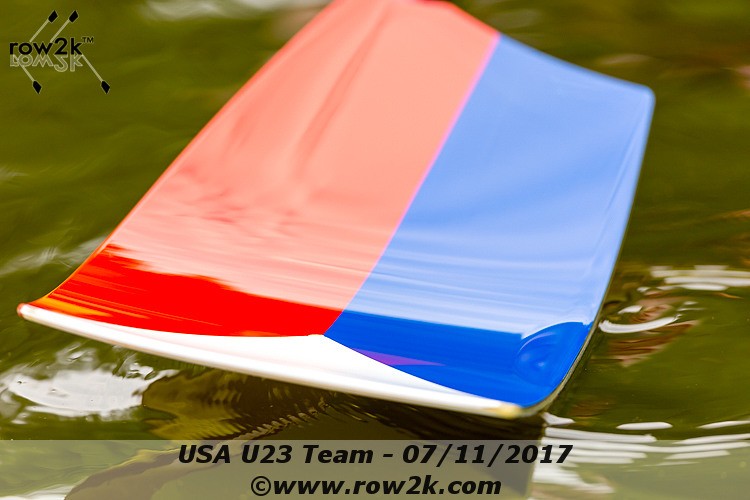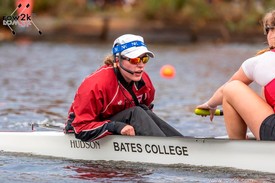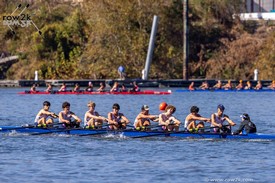Board Reorganization Fails Amid Grassroots Concerns

A USRowing membership vote that would have allowed a restructuring of the organization's Board of Directors, and would have required a two-thirds majority, narrowly failed to gain even overall acceptance.
The measure saw an overall 50.9 to 49.1 disapproval from eligible voters that participated, and the attempt to change the existing organizational bylaw needed a higher level of approval.
The measure would have increased the number of board members to 15 from 14 and given a more direct involvement in USRowing governance to the National Rowing Foundation, one of the main national team funding sources. The result leaves the current constitution of the board as-is, and sets in motion an election to fill vacant regional board seats.
Among the concerns of those who voted against the measure was a feeling that the effort reduced the voice and influence of member organizations and athletes.
Under the reorganization proposal, the number of regional directors on the board would have been reduced from six to four, and the the number of athlete directors would have gone from four to three. The proposal left both athletes and organizational members feeling that the impact on the governance of the organization would be unacceptably lessened.
"Sort of the word on the street was that it was not popular with athletes as well as organizational members, and that it would not pass," said Leslie Pfeil, who heads the Philadelphia Scholastic Rowing Association, which represents 60 high school crew programs.
Pfeil said the PSRA was among those member organizations that voted against the change. She said she did not believe any of the individual PSRA teams voted in favor of the change.
"It was not popular among the members of the PSRA," she said. "We believed that the new proposal weakened the voice of the general membership. Many people felt that they understood the desire of USRowing and the NRF to work together more to further their collaboration - which is a good idea - but they felt the proposal reduced the actual representation of membership, particularity on the domestic side."
Pfeil, who is also a member of a USRowing committee formed to study ways to grow membership, said voting members from other regions of the country and representatives from the different segments, including masters, club, athlete, and collegiate voters, also expressed concern that the "grassroots," voice would be reduced during discussions among the committee members.
One glaring result from the vote was the lack of overall participation. Of the 1,680 eligible voters, only 249 total ballots were returned. Eligible voters consist of member organizations and current and former athletes.
The vote, and the overall lack of voter participation, added more clarity to what new USRowing Chief Executive Officer, Patrick McNerney, feels is his overall goal for the coming year, his first full year in the position.
"The process was very, very healthy and there has been a level of engagement which, from my perspective, has been very constructive," McNerney said. "If you look at it as an incoming CEO, it has put me into a position where I have had substantive discussions with our members about the merits of the bylaws, but also about a number of other challenges that we need to deal with. "As a new person coming in, it's one thing to say 'Hey, I'm Patrick McNerney, and I'm here to help.' And it's another to have a substantive discussion on a topic and really delve into it. The vote leaves us in a constructive place. We have this foundation to move forward, but we clearly have challenges."
Among those McNerney identified are meeting fundraising goals, finding a way to convey the value of being a member of the organization, and participating in the shaping of its future to the overall US rowing community.
"The number of participants that are voting is low, so the challenge or the question for us as an organization is how do we do a better job of engaging our members to want to participate in these important initiatives?
"It speaks to the question I asked when I first joined USRowing, which is, what does USRowing do for me? Why should I be a member of USRowing? For me the message going into 2018 is to continue to focus on answering that question."
McNerney said that the intention of the reorganization was not to reduce community input, but that having NRF directors on the board would increase fundraising efforts and give direct governance participation to the NRF, one of the largest sources of national team funding.
NRF co-director Jamie Koven said in an email to row2k that the NRF would remain "supportive of the move to help improve USRowing governance, including changing the way board members are selected, to ensure there's a strong mix of skills and experience, such that the board can better support USRowing management in running all aspects of the organization.
"While the member organizations didn't vote for the changes at this time, we are confident that the rowing community can still work together to find an improved governance model. Like everything else, some parts of the current model work well, and some could be improved. This was an effort by the current USRowing board to find an improved structure and we applaud the significant effort that went into it."
Koven wrote that the United States Olympic Committee has been "very actively involved in this process and brought to bear expertise from several other NGB's.
"We do not want to lose their support," he wrote. "The NRF has also been involved along with many other organizations and individuals in the rowing community to find a better path forward to develop and support all that USRowing does both in its domestic programs efforts and for the national teams.
"I'm sure we will learn why some of the member clubs voted both for and against this plan in the coming weeks and months, and why some did not vote at all, but I haven't heard from anyone in the rowing community that the existing structure is ideal.
"My suggestion would be to work together to learn from that feedback, and perhaps try again with a new governance reform that addresses the broader concerns of the rowing community and also reflects the basic tenants of this reform," Koven wrote.
McNerney said he did not believe that the relationship between USRowing and the NRF would be strained by the vote. "Certainly, one of the bigger challenges is how we address the bigger fundraising goal we need to achieve as an organization. I will say that our relationship with the NRF is very strong and very positive. And that is an important message."
If you enjoy and rely on row2k, we need your help to be able to keep doing all this. Though row2k sometimes looks like a big, outside-funded operation, it mainly runs on enthusiasm and grit. Help us keep it coming, thank you! Learn more.
Comments | Log in to comment |
There are no Comments yet
| |
- Bont Rowing
- Calm Waters Rowing
- Concept 2
- Craftsbury Sculling
- The Crew Classic
- CrewLAB
- Croker
- Dad Vail Regatta
- Durham Boat Co.
- Empacher
- Faster Masters
- Filippi
- Fluidesign
- h2row.net
- HUDSON
- Live2Row Studios
- Nielsen-Kellerman
- Oak Ridge RA
- Peinert Boat Works
- Pocock Racing Shells
- Race1 USA
- RowKraft
- Rubini Jewelers
- Vespoli USA
- WinTech Racing
- Bont Rowing
- Calm Waters Rowing
- Concept 2
- Craftsbury Sculling
- The Crew Classic
- CrewLAB
- Croker
- Dad Vail Regatta
- Durham Boat Co.
- Empacher
- Faster Masters
- Filippi
- Fluidesign
- h2row.net
- HUDSON
- Live2Row Studios
- Nielsen-Kellerman
- Oak Ridge RA
- Peinert Boat Works
- Pocock Racing Shells
- Race1 USA
- RowKraft
- Rubini Jewelers
- Vespoli USA
- WinTech Racing

















